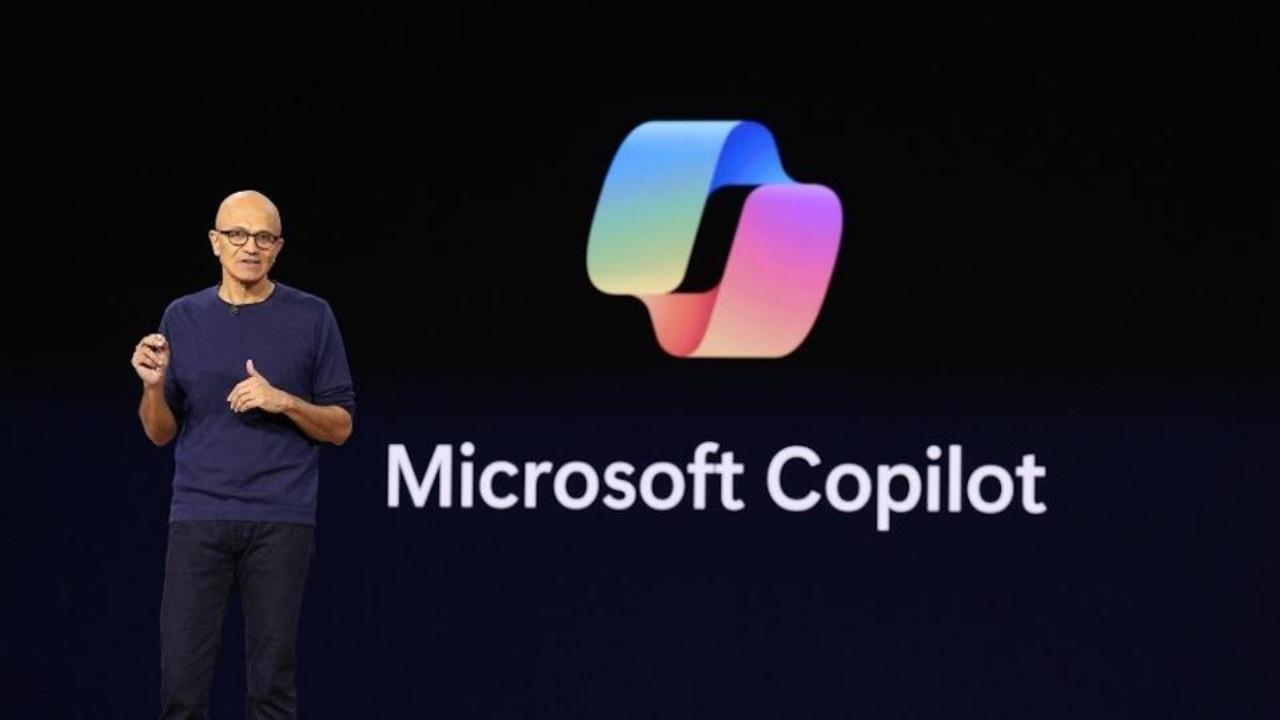You have not yet added any article to your bookmarks!

Join 10k+ people to get notified about new posts, news and tips.
Do not worry we don't spam!

Post by : Anis Farhan
In the world of science and technology, the discovery of new materials has always been a long and costly process. From steel that powered the Industrial Revolution to silicon that shaped the digital age, materials are the foundation upon which human progress stands. Yet, for centuries, developing new materials has relied on trial and error, often taking decades to yield results. That timeline may be about to change forever. Microsoft has unveiled MatterGen, an artificial intelligence (AI) model designed to accelerate materials discovery and engineering. This breakthrough could redefine industries ranging from energy and healthcare to electronics and climate science.
MatterGen isn’t just another generative AI model—it is one tailored specifically for materials science. Unlike traditional AI systems that process text or images, MatterGen is trained to understand chemical structures, atomic interactions, and the underlying rules of material properties. In doing so, it can propose new compounds, predict their stability, and even suggest potential applications—all in a fraction of the time it would take human researchers.
Developing new materials is notoriously complex. Scientists must balance chemistry, physics, and engineering considerations to create compounds that meet specific needs. For example, designing a material for a next-generation battery requires not only high energy density but also safety, longevity, and affordability. Testing every possible chemical combination through physical experiments is practically impossible, given the near-infinite permutations.
Traditional computational models, such as density functional theory (DFT), have helped simulate some material behaviors, but these methods are slow and limited in scope. This is where AI, and specifically Microsoft’s MatterGen, steps in. By training on vast datasets of known materials and applying generative modeling techniques, MatterGen can predict promising candidates within hours rather than years.
MatterGen builds upon advances in generative AI and machine learning. Similar to how large language models predict the next word in a sentence, MatterGen predicts how atoms arrange themselves to form stable structures. It uses a combination of physics-based rules and learned patterns to ensure its outputs are not just random but scientifically plausible.
Key capabilities include:
Molecular Design: Proposing new molecules and compounds that fit desired criteria.
Property Prediction: Estimating thermal, mechanical, and electrical properties without exhaustive lab testing.
Application Mapping: Suggesting which industries and problems the new material could address.
Accelerated Iteration: Providing researchers with rapid design cycles for experimentation and refinement.
By integrating with cloud computing and Microsoft’s Azure infrastructure, MatterGen also ensures scalability. This means teams around the world can access its power without requiring supercomputers, democratizing access to advanced materials design.
The possibilities for MatterGen’s impact are vast. Here are some of the most promising domains where this technology could be transformative:
Energy Storage:
Better batteries are essential for electric vehicles, renewable energy storage, and portable electronics. MatterGen could identify safer and more efficient materials for lithium-ion replacements or even pave the way for completely new types of batteries.
Healthcare and Medicine:
New biomaterials could revolutionize implants, prosthetics, and drug delivery systems. For example, materials that mimic natural tissues could enable advanced regenerative medicine.
Climate Solutions:
MatterGen could help design materials for carbon capture, water purification, or renewable energy generation. Lightweight yet strong compounds could reduce emissions in construction and transportation.
Electronics:
The semiconductor industry is constantly searching for faster, smaller, and more energy-efficient materials. MatterGen might identify compounds beyond silicon, advancing quantum computing and flexible electronics.
Aerospace and Defense:
Stronger, lighter materials are crucial for space exploration and aviation. AI-designed composites could withstand extreme environments while reducing costs.
One of the most profound aspects of MatterGen is the acceleration of scientific discovery. Historically, materials breakthroughs have driven technological revolutions. It took decades to optimize steel for railroads, years to refine plastics for mass use, and countless experiments to make silicon the backbone of modern electronics. With MatterGen, researchers can compress these timelines dramatically.
Instead of screening thousands of possibilities in the lab, scientists can start with AI-generated candidates that already have high probabilities of success. This not only saves time but also reduces costs and conserves resources. The result is a world where scientific innovation could keep pace with urgent global challenges like climate change and sustainable development.
Microsoft envisions MatterGen as a tool for collaboration. By making it available through Azure AI, researchers from universities, startups, and large corporations alike can tap into its capabilities. This democratization could prevent material discovery from being concentrated only in wealthy labs with supercomputers.
Partnerships are already forming between Microsoft and research institutions to test MatterGen’s potential in real-world projects. Early trials suggest significant promise, but the model will continue to evolve as it processes more data and receives feedback from scientists in diverse fields.
While MatterGen’s potential is enormous, it also raises important questions. Can AI-generated materials be trusted without extensive testing? How do we ensure that new compounds are safe for humans and the environment? There are also concerns about misuse—could powerful new materials be weaponized or cause unforeseen ecological harm?
Microsoft and its collaborators stress that AI is a tool, not a replacement for human expertise. MatterGen is meant to guide discovery, not bypass the rigorous scientific method. Every proposed material must still undergo careful validation, testing, and regulation before deployment. Transparency, ethical guidelines, and global cooperation will be crucial as AI reshapes the field of materials science.
MatterGen represents a glimpse into a future where AI and science work hand in hand to solve humanity’s biggest problems. Imagine a world where sustainable building materials cut emissions in half, where safer and longer-lasting batteries power cities, and where custom-designed biomaterials heal injuries without rejection. That future may be closer than we think.
By integrating the power of generative AI with the rigor of scientific research, Microsoft’s MatterGen could accelerate discoveries that once seemed decades away. It won’t solve every problem, but it provides a powerful new lens through which we can approach the challenges of the modern world.
The unveiling of Microsoft’s MatterGen marks a turning point in how we think about science and innovation. For centuries, material discovery has been the slow heartbeat of progress, dictating the pace of industrial revolutions and technological eras. Now, AI is set to quicken that pulse, opening doors to discoveries limited only by human imagination and ethical responsibility.
MatterGen is not just about designing new materials—it’s about reimagining what’s possible. If developed responsibly, it could help usher in a new era of sustainable, efficient, and transformative technologies, ensuring that the materials of tomorrow are designed today.
This article is for informational purposes only and does not represent official scientific or investment advice. Readers should rely on peer-reviewed studies and expert consultation before drawing conclusions or making decisions related to materials research or AI technologies.










China Claims India-Pakistan Peace Role Amid India’s Firm Denial
China claims to have mediated peace between India and Pakistan, but India rejects third-party involv

Mel Gibson and Rosalind Ross Split After Nearly a Decade Together
Mel Gibson and Rosalind Ross confirm split after nearly a year. They will continue co-parenting thei

Rashmika Mandanna, Vijay Deverakonda Set to Marry on Feb 26
Rashmika Mandanna and Vijay Deverakonda are reportedly set to marry on February 26, 2026, in a priva

FIFA Stands by 2026 World Cup Ticket Prices Despite Fan Criticism
FIFA defends the high ticket prices for the 2026 World Cup, introducing a $60 tier to make matches m

Trump Claims He Ended India-Pakistan War, Faces Strong Denial
Donald Trump says he brokered the ceasefire between India and Pakistan and resolved eight wars, but

Two Telangana Women Die in California Road Accident, Families Seek Help
Two Telangana women pursuing Master's in the US died in a tragic California crash. Families urge gov